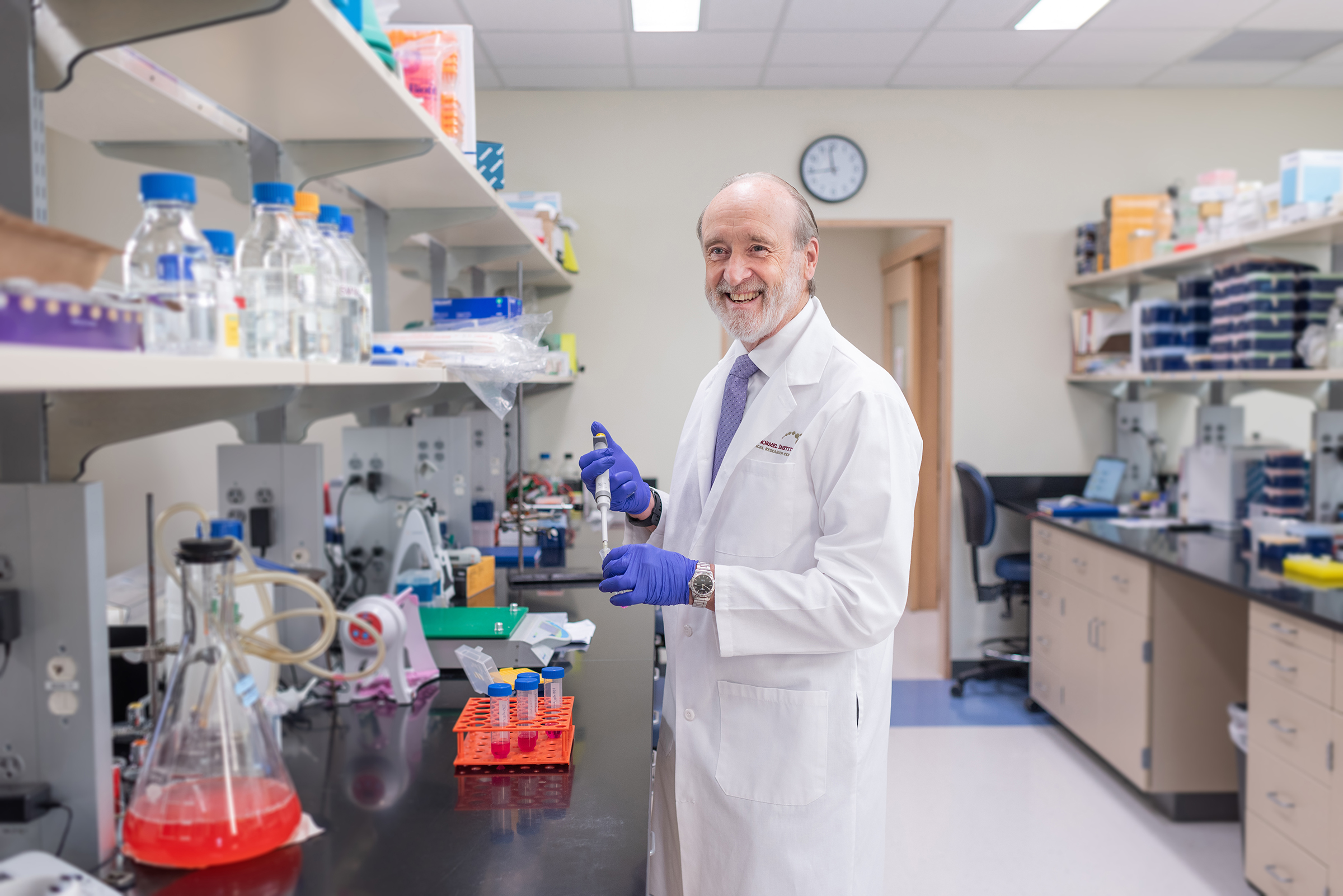
Robert Clarke, PhD
Professor of Biochemistry, Molecular Biology and Biophysics, UMN
We collect multiplatform (including genomic, transcriptomic, proteomic, metabolomic) data from human breast cancer cell lines, animal models and patients. Analyze these data using machine learning and artificial intelligence based algorithms to build predictive models of drug resistance. Finally, we validate model predictions mechanistically in experimental in vitro and in vivo models.
Dr. Clarke’s research is involved in mechanistic translational and transdisciplinary studies in breast cancer, with an emphasis on endocrine responsiveness and drug resistance. Focusing initially on the interactions of hormones and cytotoxic drugs in breast cancer cells, research expanded into studies of the cellular and molecular mechanisms of how breast cancers become resistant to endocrine and cytotoxic therapies. Dr. Clarke’s laboratory takes a systems biology approach, applying state-of-the-art ‘omics’ (genomic, transcriptomic, proteomic, metabolomic), bioinformatic, cellular and molecular biologic technologies to cell cultures, animal models, and human specimens from clinical studies. A long time collaboration with computer scientists and engineers has enabled much of this work.
